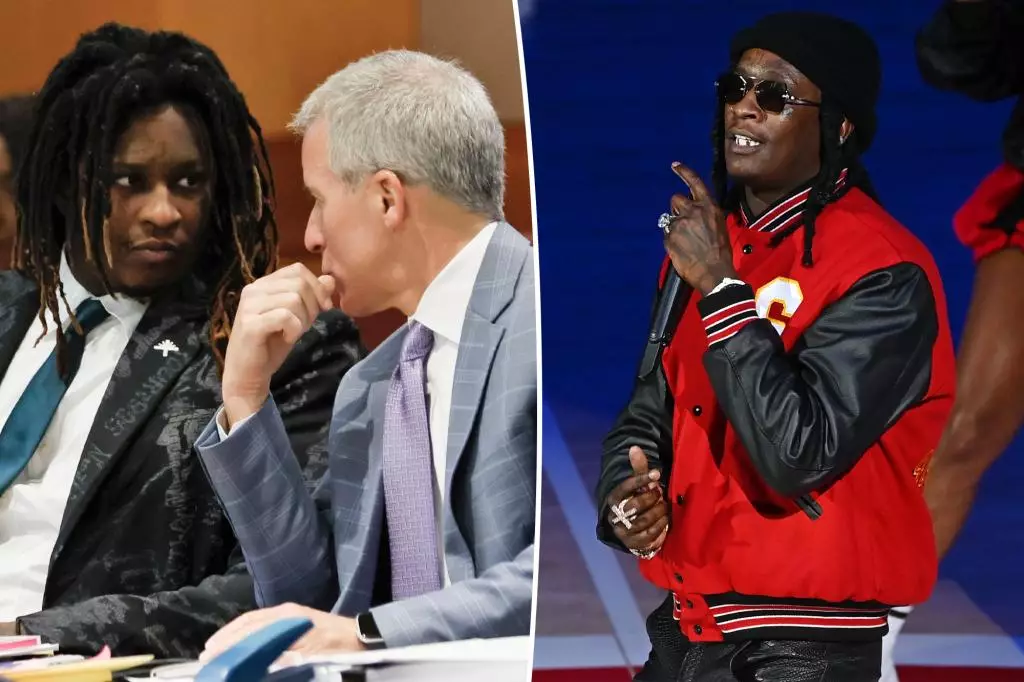In a significant turn of events, rapper Young Thug, whose real name is Jeffery Lamar Williams, has accepted a plea deal that effectively concludes Georgia’s longest criminal trial. The plea agreement, reached in Atlanta, addresses multiple charges related to drugs, firearms, and gang association, marking a pivotal moment in a legal saga that has captivated fans and the media alike. By pleading guilty to a variety of charges—including three drug offenses, two gun-related charges, and a gang-related charge—Young Thug’s legal troubles have taken a structured path towards resolution. With more than two years spent in custody awaiting trial, he is set to move forward with his life, albeit under strict supervision and guidelines.
As part of the plea deal, Young Thug will face 15 years of probation and is mandated to complete 100 hours of community service annually. Superior Court Judge Paige Whitaker has also imposed conditions aimed at repealing further incidents that could lead to similar legal troubles. Notably, the rapper is required to vacate the Atlanta metropolitan area for the first decade of his probation, with allowances only for critical life events. Furthermore, he will need to return to the city quarterly to conduct presentations aimed at combating gang and gun violence. These stipulations underscore a growing concern from the judicial system regarding the influence of gang culture on young artists and their audiences.
Notably, Young Thug faced an immense potential sentence of 120 years if convicted on all counts. His arrest and subsequent indictment in May 2022 centered on allegations that he was the leader of a gang known as Young Slime Life (YSL). The prosecution argued that YSL had connections to Young Thug’s record label, Young Stoner Life Records, which raised eyebrows regarding accountability and exploitation within artistic realms. Despite the serious nature of the accusations—ranging from armed robbery to murder—Young Thug has consistently denied being the gang’s ringleader, creating a complex narrative that intertwines his artistic identity with criminal undertones.
The artist, who has reached notable heights since his rise to fame in 2013, is now confronting broader implications of his legal challenges on his career. Not just a prominent figure in the music industry, Young Thug holds a Grammy for his songwriting on Childish Gambino’s celebrated track “This Is America” and has received multiple nominations throughout his career. However, the line between artistic expression and criminal association is becoming increasingly scrutinized, raising questions about the responsibilities of artists and their impacts on public perception.
As Young Thug embarks on this new chapter following his plea agreement, his legacy in the hip-hop genre will inevitably be influenced by his past transgressions. With legal obligations that ripple into his personal and professional life, the rapper’s trajectory will likely navigate through public redemption and the pursuit of reestablishing his reputation. The challenges ahead may well reshape not only his career but also how the industry views similar situations where music, identity, and legality collide.

